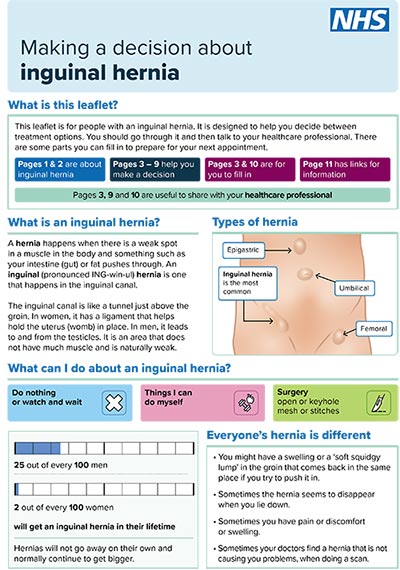
What is an Inguinal Hernia?
A hernia is a bulge that has formed when the internal organs of the body push through a weak spot in the abdominal wall. An inguinal hernia, also known as a groin hernia, is a bulge that forms when a part of your small intestine or fatty tissue protrudes through a weak spot in the groin (area between the upper thigh and lower abdomen) or scrotum (muscular sac containing male testes).
Inguinal hernia is of two types:
- Indirect inguinal hernia: Indirect inguinal hernia often affects premature infants and is caused because of non-closure of the inguinal canal and is a congenital disorder.
- Direct inguinal hernia: Direct inguinal hernia is common in adult males and is caused because of degeneration of tissues in the abdominal muscles.
Symptoms of Inguinal Hernia
Symptoms may include pain, aching, discomfort, or heaviness in the affected area.
Treatment of Inguinal Hernia
Small hernias that do not cause any symptoms are usually not treated but instead your doctor may follow a wait-and-watch approach. Surgery is indicated for hernias that show symptoms, are enlarged or entrapped. A hernia can sometimes become trapped or strangulated and cannot be pushed back into the abdomen. This is referred to as an irreducible hernia. It is a dangerous situation where the blood supply to the hernia is compromised and may require emergency surgery.
Inguinal hernia repair is a surgical procedure performed to treat this condition. During the the procedure, your surgeon pushes the hernia back into the abdomen while stitching and strengthening the section of the weak abdominal wall with a synthetic mesh. Inguinal hernia repair may be performed either through an open surgery or a minimally invasive laparoscopic surgery.







